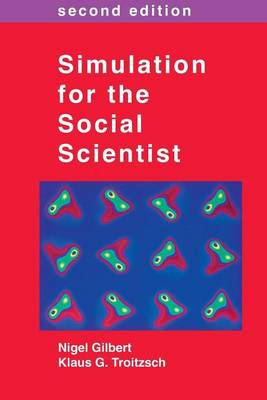What can computer simulation contribute to the social sciences?Which of the many approaches to simulation would be best for my social science project?How do I design, carry out and analyse the results from a computer simulation?Interest in social simulation has been growing rapidly worldwide as a result of increasingly powerful hardware and software and also a rising interest in the application of ideas of complexity, evolution, adaptation and chaos in the social sciences. Simulation for the Social Scientist is a practical textbook on the techniques of building computer simulations to assist understanding of social and economic issues and problems.This authoritative book details all the common approaches to social simulation, to provide social scientists with an appreciation of the literature and allow those with some programming skills to create their own simulations.
New for this edition:
A new chapter on designing multi-agent systems, to support the fact that multi-agent modelling has become the most common approach to simulationNew examples and guides to current softwareUpdated throughout to take new approaches into accountThe book is an essential tool for social scientists in a wide range of fields, particularly sociology, economics, anthropology, geography, organizational theory, political science, social policy, cognitive psychology and cognitive science. It will also appeal to computer scientists interested in distributed artificial intelligence, multi-agent systems and agent technologies.
- ISBN10 1280953748
- ISBN13 9781280953743
- Publish Date 1 January 2005
- Publish Status Active
- Out of Print 9 June 2015
- Publish Country US
- Imprint Open University Press
- Edition 2nd Revised ed.
- Format eBook
- Pages 295
- Language English
